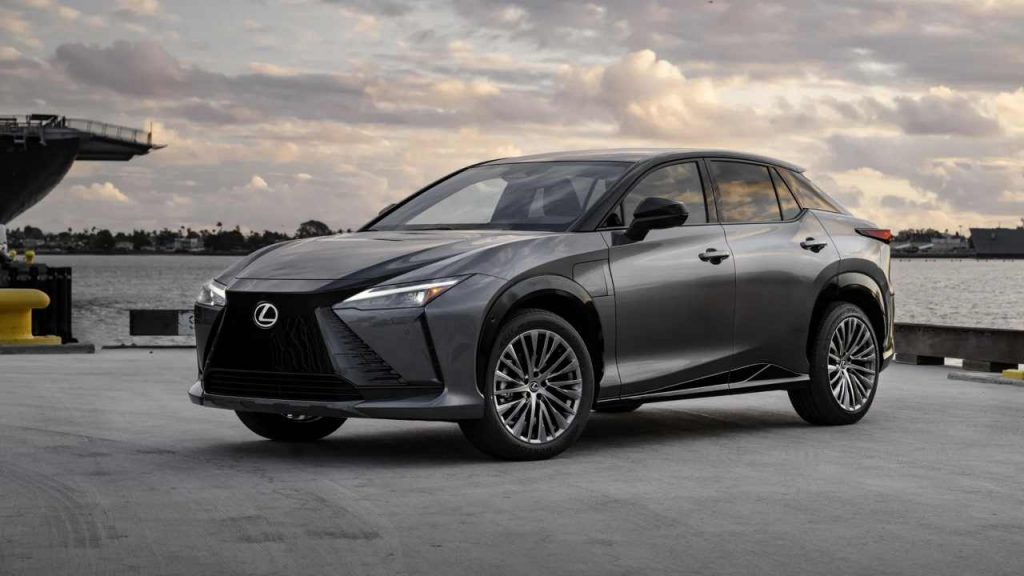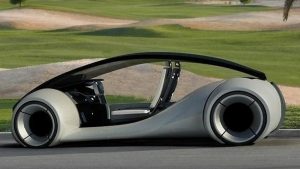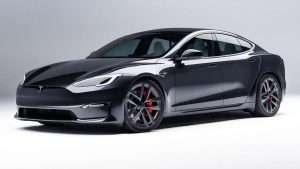Lexus Unveils 2024 RZ 300e: Affordable, Longer-Range Variant of Its Electric Crossover

Lexus RZ 300e (greeencarreports.com)
New Single-Motor Front-Wheel Drive Model Offers Increased Range at a More Accessible Price Point
Lexus is expanding its electric lineup for the 2024 model year with the introduction of the RZ 300e, a more affordable and longer-range version of its RZ electric crossover. This new variant features a single-motor front-wheel drive powertrain coupled with a 72.8-kWh CATL battery pack, providing a distinct option for eco-conscious consumers.
Diverging from the dual-motor all-wheel-drive setup in the existing RZ 450e model, the RZ 300e is expected to offer substantial gains in range. While the power output decreases from 308 hp in the RZ 450e to 201 hp in the RZ 300e, the latter is estimated to achieve an impressive 266 miles on a single charge with 18-inch wheels, according to Lexus. In contrast, the RZ 450e, with an EPA-rated range of 220 miles on 18-inch wheels, and just 196 miles on 20-inch wheels, emphasizes a dual-motor configuration for enhanced performance.
Pricing for the RZ 300e starts at $55,150 (including a $1,150 destination charge) in the base Premium trim with 18-inch wheels, making it $3,500 cheaper than the 2023 RZ at the base level. Lexus also offers the Premium grade with 20-inch wheels for $56,390, while the higher Luxury grade starts at $60,880.
This marks the second model year for the RZ, which shares a platform with the Toyota BZ4X and Subaru Solterra. Positioned as Lexus’s inaugural electric vehicle for the U.S., the RZ 300e represents a strategic move towards providing consumers with a more affordable electric option without compromising on range.
Lexus aims to prioritize features in its pricing strategy, with the RZ 300e offering a balance of increased range and affordability. While the RZ 300e provides an extended driving range, it omits certain tech features present in the global version, such as steer-by-wire and a steering yoke.
As part of a broader electrification strategy, Lexus is working towards a fully battery-electric lineup by 2030, setting the brand on a distinct trajectory compared to its parent company, Toyota, which anticipates a significant proportion of hybrid and internal combustion engine vehicles in its lineup by the same year.







